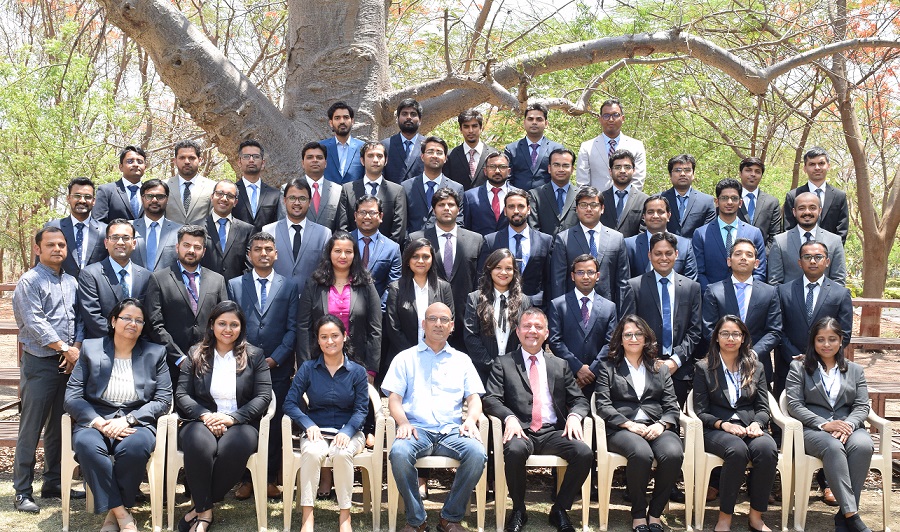Post-Graduate Programme
The goals of the postgraduate programmes at the Indian Institute of Technology Kanpur are: The development of scientific and engineering manpower of the highest quality, to cater to the needs of industry, R & D organizations and educational institutions, a broad grasp of the fundamental principles of the sciences and scientific methods, a deep understanding of the area of specialization, an innovative ability to solve new problems, and a capacity to learn continually and interact with multidisciplinary groups. Above all, the students should have a capacity for free and objective enquiry, courage and integrity, awareness and sensitivity to the needs and aspirations of society. With these goals in view, the postgraduate programmes are designed to include courses of study, seminars and project/thesis through which a student may develop his/her concepts and intellectual skills.
The procedures and requirements stated in this manual embody the philosophy of the postgraduate education and ensure a high standard of performance at the Institute. Within this general framework, subject to the approval of the Senate Postgraduate Committee (SPGC), the various departments and programmes may impose such additional requirements as will serve their particular academic goals. The Institute offers the following post-graduate programmes:
(I) MASTER OF TECHNOLOGY (M.TECH)
The Institute offers programmes leading to the Master of Technology (M.Tech.) degree in the following disciplines:
- Aerospace Engineering
- Biological Sciences and Bio-Engineering
- Chemical Engineering
- Civil Engineering
- Computer Science and Engineering
- Earth Sciences
- Electrical Engineering
- Environmental Engineering and Management
- Industrial and Management Engineering
- Materials Science and Engineering
- Materials Science Program
- Mechanical Engineering
- Nuclear Engineering and Technology
- Photonics Science and Engineering
Admission to this programme may be made directly based on the GATE scores of the candidates and performance in the qualifying examination, and in addition, some of the candidates may also be called for written tests and/or interviews.
(II) Master of Science (MS) by Research Programme in Engineering
The Institute also offers programmes leading to MS by Research in engineering disciplines to promote research, including sponsored projects based research. This programme is offered in the following disciplines:
- Chemical Engineering
- Civil Engineering
- Computer Science and Engineering
- Electrical Engineering
- Environmental Engineering and Management
- Mechanical Engineering
- Photonics Science and Engineering
Admission to this programme may be made directly based on the GATE scores of the candidates and performance in the qualifying examination, and in addition, some of the candidates may also be called for written tests and/or interviews.
(III) Master of Design (M.Des.) degree.
2 Year degree programme in:
- Design
Admission to this programme may be made directly based on the CEED scores of the candidates and performance in the qualifying examination, and in addition, some of the candidates may also be called for written tests and/or interviews.
(IV) Master of Business Administration (MBA) degree
Admission to this programme may be made based on the CAT score and performance in the interview and/or group discussion.
(V) Doctor of Philosophy (Ph.D.)
Programmes leading to the Doctor of Philosophy (Ph.D.) degree exist in the following disciplines:
- Aerospace Engineering
- Biological Sciences and Bio-Engineering
- Chemistry
- Chemical Engineering
- Civil Engineering
- Computer Science and Engineering
- Design
- Earth Sciences
- Electrical Engineering
- Humanities and Social Sciences (Economics, English, Philosophy, Psychology and Sociology)
- Industrial and Management Engineering
- Materials Science and Engineering
- Materials Science Program
- Mathematics (including Statistics)
- Mechanical Engineering
- Nuclear Engineering and Technology
- Photonics Science and Engineering
- Physics
Admission to this programme may be made directly based on the GATE scores of the candidates and performance in the qualifying examination, and in addition, some of the candidates may also be called for written tests and/or interviews.
The Senate Postgraduate Committee (SPGC), established according to the bylaws of the Senate, operates through the Departmental Postgraduate Committees (DPGCs) to administer all aspects of the above programmes. The constitution, jurisdiction and functions of the SPGC and the DPGC are given in Annexure I of PG manual.
For detailed information about all post-graduate programmes, please refer to PG manual (Link)

